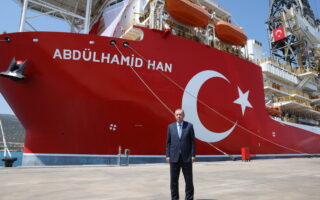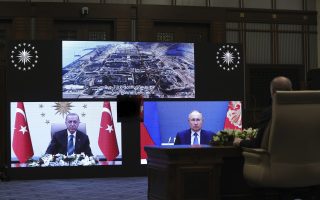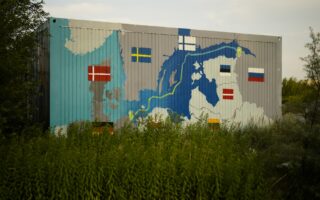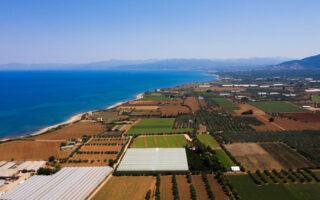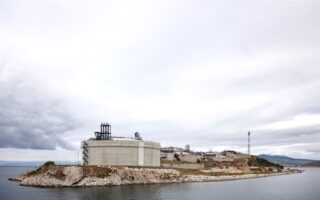Drilling rig diplomacy
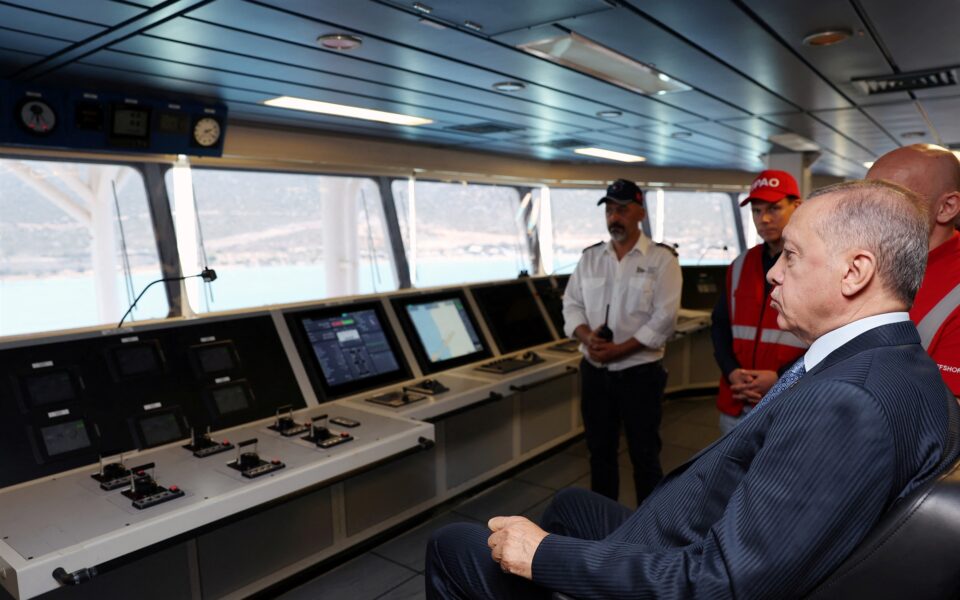
When Turkish Energy Fatih Minister Donmez said that President Recep Tayyip Erdogan would announce the drilling zone of the Abdulhamid Han, expectations and concerns were raised about the choice of location and whether it could cause tension in the field between Athens and Ankara. In the following days, the latter gave verbal assurances to the Americans, Europeans, and through them to Athens that at least at this point, it was not going to “provoke” Greek reflexes.
It is a good thing that the first of the seven drilling operations does not even concern the Cypriot continental shelf, which Turkey has been systematically violating since 2013. However, after October 7, when the Navtex is completed, Erdogan will have the opportunity to negotiate for each of the exploratory drilling operations that will follow.
Turkey, however, faces an oxymoron: The war in Ukraine is strengthening its position, particularly its role regarding the release of Ukrainian grain and, more generally, its quasi-mediation between Kyiv and Moscow; however, its ambiguous position vis-a-vis Moscow, its cooperation with it in various areas, and its helping hand to Vladimir Putin in the context of the Russian president’s isolation from the entire West (with the exception of Hungary’s Viktor Orban), puts Ankara in an awkward position.
Therefore, any move that would force Greece to respond with justified force, undermining the North Atlantic Pact at a very critical moment, would not be tolerated by the United States.
At this stage, therefore, Turkey can claim to have chosen the most moderate scenario (even if the area of exploration is not legally delimited), while Greece is gaining time and composure in the midst of internal turmoil. However, it is certain that Turkey’s four floating drilling rigs are not only part of its energy program but also a tool for foreign policy. So, its next moves in the energy game depend not only on its given intention to become independent of oil and gas imports but also on trying to make the upcoming drilling a part of the grand negotiation taking place mainly with the US.
Turkey can claim to have chosen the most moderate scenario, while Greece is gaining time and composure in the midst of internal turmoil
As to the former, Turkey is looking for a role in the transit of Eastern Mediterranean hydrocarbons to the European market, given that existing or future projects of the Southern European Corridor bypassing Russia (will) pass through its territory anyway. Wanting to become the “energy lung” of the European Union, Ankara is attempting, after several years of self-marginalization due to poor relations with Israel and Egypt, to get involved in the energy projects of the Eastern Mediterranean. In addition to blackmail and threats against Cyprus and Greece, if it discovers something worthwhile in the areas where it will carry out exploratory drilling, it will “sell” its usefulness, with a willingness to cooperate with some of the players in the region in order to jointly export natural gas to international markets. Moreover, while building a nuclear power plant with Russia, the Turks claim that they want to contribute to Europe’s energy independence from Moscow.
In the oriental bargaining that has already started with Washington, each side wants to set the terms of the debate. Ankara’s advantage is that its drilling program in the Eastern Mediterranean is going to last, roughly, until the national elections. Knowing that the US side would exhaust the possibilities to prevent a crisis with Athens, every time Erdogan will choose the location of the next drilling, he will negotiate, offering to avoid tension or threatening to provoke more tension depending on how satisfied he is with the progress of the consultations. It should be noted that the Turkish president referred to areas under Turkey’s jurisdiction under the “Blue Homeland” doctrine, for which when he will drill, he will not ask anyone’s permission.
However, as much as this is electoral twaddle, the pressure exerted on him by the opposition to enforce the “Blue Homeland” doctrine, especially in its entirety, combined with the ever-negative opinion poll findings and the shift of the economy from a strong card to a boomerang, oblige Erdogan to seek tangible results from exploratory drilling, either by locating reserves and/or by demonstrating his strength as a regional hegemon, which no power can ignore. But how will he secure F-16s from a hostile Congress if he does not respect the Americans’ desire for de-escalation, when he needs if not support, at least US-EU tolerance before and after the Turkish elections?
Constantinos Filis is the director of the Institute of Global Affairs and associate professor at the American College of Greece.
